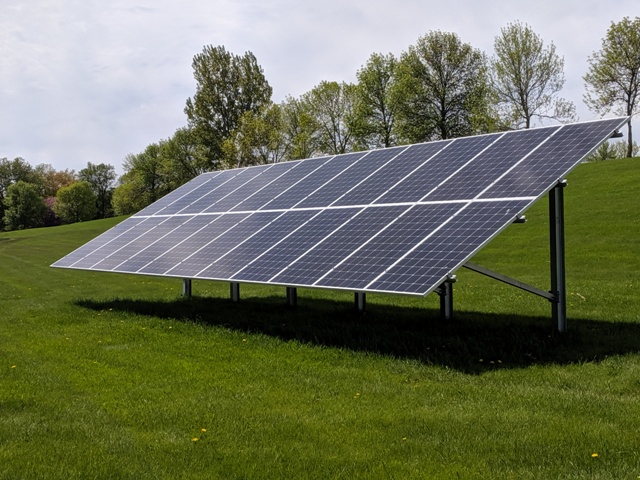Harness the Power of Solar Panels: A Comprehensive Guide to Green Energy
Understanding Solar Panels:
Solar panels, also known as photovoltaic (PV) panels, are devices that convert sunlight into usable electricity. Made up of multiple solar cells, these panels capture sunlight photons and convert them into direct current (DC) electricity. An inverter then transforms the DC electricity into alternating current (AC) electricity, which is the type of electricity commonly used in homes and businesses.

Advantages of Solar Panels:
2.1. Renewable Energy Source:
Solar energy is a clean and renewable energy source that produces no harmful emissions or pollution. By embracing solar panels, we reduce our dependence on non-renewable energy sources such as fossil fuels, contributing to a greener and more sustainable future.
2.2. Cost Savings:
Installing solar panels can lead to significant cost savings in the long run. While the initial investment may seem substantial, the energy generated by solar panels can offset or even eliminate electricity bills over time. Additionally, surplus energy can be sold back to the grid, allowing homeowners to earn money through net metering programs.
2.3. Energy Independence:
By generating your own electricity through solar panels, you become less reliant on the grid. This offers a sense of energy independence and protection against rising energy costs. During power outages or emergencies, solar panels with battery storage can provide a backup power supply, ensuring uninterrupted electricity.
Choosing the Right Solar Panel System:
3.1. Evaluating Your Energy Needs:
Before installing solar panels, it's essential to assess your energy needs. Consider your average monthly energy consumption and any future energy requirements. This evaluation will help determine the size and capacity of the solar panel system you require.
3.2. Types of Solar Panels:
There are various types of solar panels available, including monocrystalline, polycrystalline, and thin-film panels. Each type has its own advantages and considerations, such as efficiency, cost, and space requirements. Researching and consulting with solar panel experts can help you select the most suitable option for your specific needs.
3.3. Professional Installation:
While DIY solar panel installation is possible, it is recommended to hire professionals for a seamless and efficient setup. Solar panel installers have the necessary expertise to handle electrical connections, ensure proper positioning for maximum sunlight exposure, and navigate any local regulations or permits required.
Maintenance and Longevity:
Solar panels generally require minimal maintenance. Regular cleaning to remove dust and debris and occasional inspections to check for any damage or malfunctions are typically sufficient. Most solar panels come with warranties ranging from 20 to 25 years, ensuring their longevity and providing peace of mind.
Conclusion:
Solar panels offer a sustainable and cost-effective solution for generating electricity while reducing our carbon footprint. By embracing solar energy, we contribute to a cleaner environment, lower our energy expenses, and gain independence from the grid. Investing in solar panels is not only an investment in a brighter future but also a step towards a more sustainable and environmentally conscious lifestyle.


